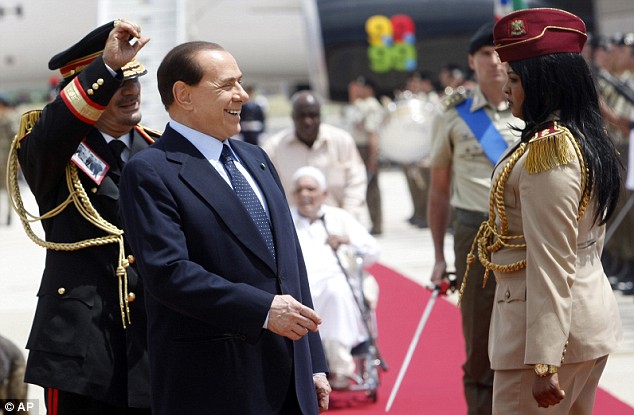Much of my life (because it is part of my work) is spent reading books, but so far on this blog I have not attempted a book review. Somehow it seems apt to begin with a book about Italy, and one which has aroused extreme passions.
The Dark Heart of Italy is not an original book. It fits into a post-Second World War tradition of informed foreigners deconstructing Italy at a national, political level (think of Banfield, Ginsborg, Stille, Lane). Sometimes this goes from the local and particular to the general (Banfield); more often, it is top down.
So The Dark Heart of Italy is not so much a book in its own right as another iteration of a genre. Myself, I find this genre to be a serious one characterised by serious authors. None of those mentioned thus far is a flippant or publicity-seeking writer. (Think of the opposite tradition, typified by Frances Mayes’ romantic fantasy, Under the Tuscan Sun). The Italy deconstruction is a serious business. This applies equally to the Italians who have practised the craft: Levi, Sciascia, Pirandello, Lampedusa… Indeed, it is striking how seriously non-fiction authors treat Italy, a country that could easily be handled in critical books in the way it is in the UK and American tabloid press.
At least as interesting as the content of The Dark Heart of Italy is an attempt to understand why it elicits extreme responses. A quick read of 46 reviews on Amazon’s UK site shows the book to have 20 five-star and nine one-star verdicts. In other words, the great majority of reviewers say this is either a very good book or a very bad book.
First, however, to the content. The Dark Heart of Italy flits in an out of personal experiences of the author while he was living four years in Parma. But its narrative drive comes from a potted history of post-Second World War communist and fascist terrorism and Italy’s failed attempts to attribute responsibility for this, most particularly through the legal system.
Intellectually, Jones’ approach follows your archetypcal northern European, post-Englightenment logic: if I do enough work, and think very carefully, I will arrive at plausible, rational explanations. Needless to say, this does not happen, and much of the book details the endless paper trail that the author follows to nowhere.
Along the way, there are astute observations. On the nature of the legal system: ‘What is important is not the principle, but the points of law. Codify, recodify, encrypt. Quod not est in actis non est in mundo: anything not written down, documented, simply doesn’t exist.’ On the failure to reach decisions: ‘No one is ever entirely guilty, no one is ever simply innocent. It’s part of the rewiring process of living in Italy that you can never say, even about the most crooked criminal, that they are factually, legally guilty: there’s always the qualifier that they’re “both innocent and guilty”. Sooner or later the accusation will be dropped anyway, because the deadline for a judicial decision has been superseded.’ On the politicisation of the judiciary: ‘If you point out that the Italian parliament (of 650 senators or deputies) currently has fifty politicians inquisiti (under investigation), people simply shrug: “the magistrates must be out to get them, that’s all.”’ On the reality of a political class that changes affiliations but not personnel: ‘in 1960… of the 64 first-class provincial prefects, all but two had served under Fascism, as had all 241 deputy prefects, and 135 questori (provincial chiefs of the state police). As late as 1973, 95% of all civil servants had been appointed to the service before the fall of Mussolini.’ On the concurrent presence of political extremism: ‘”There must be a reason,” an Italian academic wrote recently, “why it was Italy which was the fatherland of Fascism and of the largest Communist party in the western world.”’ On conspiracy theories: ‘Surrounding any crime or political event, there is always confusion, suspicion and “the bacillus of secrecy”. So much so that dietrologia has become a sort of national pastime. It means literally “behindology”, or the attempt to trump even the most fanciful and contorted conspiracy theory.’ (The recent Sollecito-Knox case in Perugia, about which I blogged in February 2009 and in December 2009, bears some of these hallmarks.)
On the contrast between the beauty you see around you and the cultural condition of contemporary Italy, Jones quotes a friend: ‘What you don’t realise, what none of you British realise, is that Italy is a cultural desert. You come here to gawp at buildings and chipped statues from 500 years ago, and imagine that we’re still in that level of cultural production. Which is, of course, absolute balls: Italy’s now, culturally, completely arid. If I were you I would go back to the 50s and 60s. Switch off the television and watch some old films instead…’
And there is a good description of the celebrated Sofri case, which led to a highly questionable 22-year term for a stubborn and principled political activist for, as one journalist put it, ‘not having doffed his cap to the bureaucratic cast of the judiciary’. There is a long interview with Sofri in which the jailed man observes of the judicial system: ‘Dietrologia is the air that you breathe in Italy. It’s the result of paranoia and jealousy, and it simply exalts an intricate intelligence. It’s like Othello and Desdemona’s handkerchief: one innocent object can spark off endless suspicions. It’s a game off endless suspicions. It’s a game which people play, almost to show off. I prefer not to see a conspiracy which exists than to see one where it doesn’t.’
Finally, there is a useful outline of the origins, the playing out and the undermining of the Mani Pulite anti-corruption movement in the early 1990s. Craxi is pelted with coins outside the hotel Raphael in Rome and soon flees into exile, the public sprays town walls with exultant graffiti about the defeat of dark forces, and Silvio Berlusconi creates a new political party named after a football chant, inviting top anti-corruption judge Antonio di Pietro to be his Minister for Justice. ‘His [di Pietro’s] moralising anxiety,’ declared Berlusconi, ‘belongs to everyone.’ Today that remark seems even funnier than it did 16 years ago. Di Pietro turned him down, but Berlusconi convinced at least one other Clean Hands magistrate to join Forza Italia.
The problem with the book, I think, is that it does not clearly separate institutions from people. The realisation that Jones comes to is of the low institutional quality of Italy. But because this is bound up with the individual stories of politicians, journalists, lawyers and others, the tale becomes an unduly general one of a failed society. There is a tendency to see failed institutions as the product of a failed people. On the contrary, I think it is more accurate to see failed individuals – terrorists, corrupt politicians, egomaniacal magistrates – as symptoms of institutional weakness rather than proof of societal failure. This leaves open the possibility – to me a certainty – that in Italy’s atomised, localised and family-centric sociology there are not only people who are unsullied by institutional weakness, there are also those who react against it by becoming ‘super-moral’ contributors to society. The biggest challenge of a deconstruction of Italy, which is always drawn to critique its institutions, is not to explain why there are so many crooks, but rather why there are not more.
In addition, one has to give a nod – which Jones does not – to odd areas of institutional strength. On many trains, and in many schools and hospitals in Italy – to give a few examples – my experience is that the attitude and morale of the ‘public servants’ one encounters is often better that what I see in the UK (though I have less recent experience there). The school system has an institutional integrity that comes from not being ghettoised between state and private provision like the UK one, even if more and more people are lamenting the condition of secondary education. There are clear benefits to the less centralised institutional structure of the country, something that all major political parties in the (super-centralised) UK have been talking up in recent years. And town centres in Italy are maintained with a loving care and pride that is much rarer in the UK. These points, and others, don’t wipe out the sins of Italy’s vampiric state-linked professional classes, but the points are nonetheless valid.
And so to those wildly divergent Amazon reviews. It is notable that among those who give The Dark Heart of Italy five stars and particularly rousing praise are Italians who have moved to the UK. Among the one-star reviews, meanwhile, are slightly hysterical Italians living in Italy and English women married to Italian men.
The book deserves ratings in the middle, and this is where the more thoughtful comments are found. One that is hard to disagree with is the observation that Jones could, of course, ‘write a book called the Dark Heart of Great Britain. Where we all live in this hellish society trapped in houses by rain, where everybody is overworked, bank holidays and Sundays are spent in the shopping centre and our only escape is through the good people on the TV who will find us a new life somewhere in Tuscany, Spain or France.’ Myself, I am giving the book four stars, which is above the current average of 3.6. (It is notable on Amazon that it is very hard to get a high score for a non-fiction book on Italy.)









